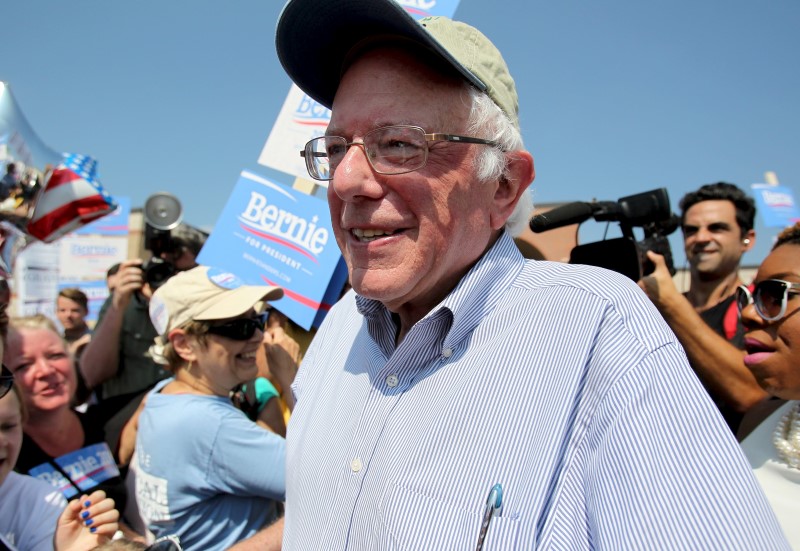WASHINGTON (Reuters) - U.S. Senator Bernie Sanders has closed the gap with rival Democratic presidential candidate Hillary Clinton in the key early voting state of Iowa, a poll showed on Thursday.
The survey by Quinnipiac University showed the senator from Vermont with 41 percent support from likely Democratic participants in the state's caucus, just ahead of Clinton's 40 percent.
While Sanders' edge is within the poll's margin of error of 3.4 percentage points, it shows the liberal lawmaker's gains on Clinton, who has been the party's frontrunner for its nomination ahead of the November 2016 presidential election since announcing her bid in April.
Clinton, whose poll numbers have dropped amid criticism over her use of a personal email account while she was secretary of state, launched a new effort this week to boost her campaign.
In July, the university's poll showed Clinton with 52 percent support among likely Democratic caucus-goers, compared to Sanders's 33 percent.
The survey also found growing support for Vice President Joe Biden, who has yet to decide whether he is entering the race.
Peter Brown, assistant director of the Quinnipiac University Poll, said the results showed Democrats' growing disenchantment with the party's status quo.
"He is the candidate of the Democratic left, against his own party's bosses and their prized presidential candidate, Secretary Hillary Clinton," he said. "Sanders has seized the momentum by offering a message more in line with disproportionately liberal primary and caucus voters."
Those polled gave high marks to Clinton for her leadership and ability to handle an international crisis, while Sanders and Biden scored better on perceptions of honesty and empathy, according to Quinnipiac.
The telephone poll, taken Aug. 27 to Sept 8., surveyed 832 likely participants in Iowa's caucus scheduled for Feb. 1.
It showed Biden with 12 percent compared to 7 percent last month. Former Maryland Governor Martin O'Malley drew 3 percent, while another 3 percent of likely Democratic caucus-goers were undecided.
Quinnipiac's survey also showed a gender gap among its results, with Clinton leading among women with 49 percent support, compared to 35 percent for Sanders.
